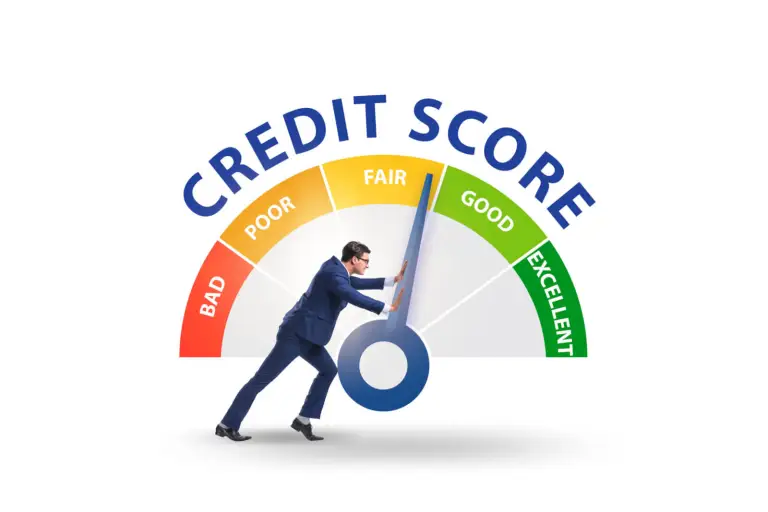How to Rebuild Credit in South Africa: A Step-by-Step Guide
August 28, 2025Having poor credit or being blacklisted in South Africa can be a challenging situation, but it’s not the end of the road. Rebuilding your credit score is entirely possible with commitment, smart financial habits, and the right strategies. Whether you’ve had a financial setback, missed payments, or defaulted on loans, this guide will show you how to get back on track and improve your creditworthiness.

Understanding Credit Scores in South Africa
Your credit score is a numerical representation of your creditworthiness, based on your credit history. It’s used by banks, lenders, and credit providers to decide whether to offer you credit, the interest rate, and the terms.
- Credit Score Range: Typically from 300 to 850 (or higher depending on the bureau).
- Good Score: Above 650 usually indicates good credit.
- Bad Credit: Scores below 580 may cause loan refusals or higher interest rates.
South Africa’s credit bureaus—such as TransUnion, Experian, and Compuscan—collect data on your payment history, defaults, and outstanding debts. This data shapes your credit report and score.
Why Is Rebuilding Credit Important?
A healthy credit score helps you:
- Access loans and credit cards with better interest rates.
- Rent property or apply for certain jobs.
- Secure cell phone contracts or insurance deals.
- Build financial stability and independence.
Step 1: Check Your Credit Report
Before you start rebuilding credit, you need to understand where you stand.
- Request Your Credit Report: South Africans are entitled to one free credit report every 12 months from each credit bureau. You can get yours online via:
- TransUnion: https://www.transunion.co.za/
- Experian: https://www.experian.co.za/
- Compuscan: https://www.compuscan.co.za/
- Look for Errors or Fraud: Incorrect data, such as outdated defaults or wrong personal details, can hurt your score. If you spot mistakes, dispute them immediately with the bureau.
- Identify Problem Areas: Note missed payments, outstanding balances, and defaults. Knowing your credit issues helps you address them directly.
Step 2: Pay Off Outstanding Debts
To rebuild credit, you need to start clearing your debts, especially those in default.
- Prioritise High-Interest and Defaulted Accounts: Settling these first can stop interest from piling up and improve your credit report.
- Negotiate with Credit Providers: Contact lenders or debt collectors to discuss payment plans or settlements. Many South African providers are willing to arrange affordable repayment terms.
- Settle Your Debt in Full or Agree on a Payment Plan: Some bureaus update your credit status from “default” to “paid” once you clear the debt, which positively affects your score.
- Avoid Ignoring Debts: Ignoring debts worsens your credit and can lead to legal action or blacklisting.
Step 3: Make All Payments on Time
Payment history accounts for about 35% of your credit score. Consistency matters.
- Automate Payments: Set up debit orders or reminders to avoid missing due dates.
- Start Small: If you don’t have current credit, consider a small store card or personal loan you can manage.
- Never Miss a Payment: Even one late payment can harm your credit.
- Track Your Payments: Use budgeting apps or spreadsheets to stay organized.
Step 4: Apply for Credit Responsibly
New credit applications affect your score via “hard inquiries” that stay on your report for up to two years.
- Avoid Multiple Applications: Applying for many credit products within a short time signals risk to lenders.
- Apply for Credit You Can Manage: Start with small limits and build up as you demonstrate good repayment habits.
- Consider Secured Credit: Some lenders offer secured credit cards or loans, where you provide collateral or a deposit.
Step 5: Use Credit Wisely
How you use credit impacts your score.
- Keep Utilization Low: Aim to use less than 30% of your available credit limit.
- Don’t Max Out Cards: Maxing out cards can harm your creditworthiness.
- Pay More Than the Minimum: Paying only the minimum extends your debt and costs more in interest.
Step 6: Build a Positive Credit History
- Get Added as a User: Ask a family member with good credit to add you as an authorized user on their credit card.
- Use Retail Store Accounts: Many retail stores offer credit accounts that report to bureaus.
- Apply for Credit-builder Loans: Some financial institutions provide loans designed to improve your credit score.
Step 7: Monitor Your Credit Progress
- Regularly Check Your Credit Report: Keep track of changes and dispute any inaccuracies.
- Use Credit Monitoring Tools: Some bureaus offer paid monitoring services with alerts.
- Celebrate Milestones: Improvements in your credit score can open new financial doors.
Tips and Warnings for Credit Rebuilding in South Africa
- Avoid Quick Fixes or “Credit Repair” Scams: No company can magically remove negative listings unless they are inaccurate.
- Keep Personal Info Secure: Identity theft is a major risk; report suspicious activity immediately.
- Don’t Ignore Blacklisting: Being blacklisted means you have serious defaults; it can be lifted once debts are settled.
- Stay Patient: Credit rebuilding takes time—usually 12 to 24 months for significant improvement.
Additional Resources
- National Credit Regulator (NCR): Oversees credit providers in South Africa. Visit https://www.ncr.org.za/ for information and complaint resolution.
- MoneySmartSA: Offers budgeting tools and tips on credit https://www.moneysmart.co.za/
- Debt Counselling: If overwhelmed, seek debt counselling from NCR-registered firms to restructure debt legally.
Conclusion
Rebuilding credit in South Africa is a realistic goal if you take the right steps. Start by understanding your credit report, paying off debts, and building positive credit habits over time. Responsible credit use and persistence will restore your financial reputation, unlocking better loans, cards, and financial freedom.
Remember, improving credit is a marathon, not a sprint. Commit to consistent, smart financial behavior and watch your credit health improve steadily.